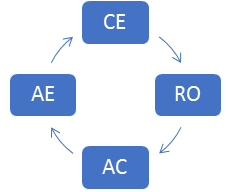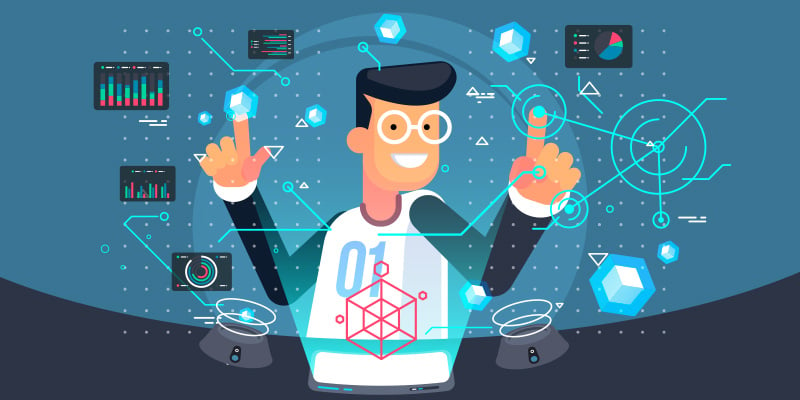
The looming skills gap is creating a benefit for L&D leaders and the workforce. CEOs see that their organizations aren’t prepared for digital disruption, so they are keen to engage in experiential learning for leadership development.
Attention is also growing in on-the-job training, simulations, and serious games. The simulation learning market is growing at an annual rate of 15.7%. Analysts believe this market will reach $22.1 billion by the end of 2025.
Learning Requires More Than Simulation
Organizations that fall prey to the “shiny object syndrome” and think that investments in simulations will create better learning may be headed for disappointment. In the words of Grant Wiggins, “Hands-On Doesn’t Mean It’s Minds-On.”
Simulation is not experiential learning. It is a method we can use to provide a lifelike experience, but that is only one part of the experiential learning process. In Experiential Learning: Experience as the Source of Learning and Development (1984), David A. Kolb defined learning as “the process where knowledge is created through the transformation of experience” (p. 38). The transformation occurs during guided reflections on the hands-on or simulated experience, and grows when the learner can experiment with what they have learned.
By using social learning tools, experiential learning will also not be created. While we hope that people will learn from each other, this training can be one-dimensional.
The Learning Experience Cycle
Kolb described the learning experience as a process that creates “an idealized learning cycle or spiral where the learner ‘touches all the bases’—experiencing, reflecting, thinking, and acting—in a recursive process responsive to the learning situation and what is being learned” (Kolb, p. 194).

- Concrete Experience (CE): having an experience.
- Reflective Observation (RO): reflecting on the experience.
- Abstract Conceptualization (AC): learning from the experience.
- Active Experimentation (AE): trying out what you have learned.
We might believe we learn best by doing, but when we consider the whole experience, we find that learning requires much more than action.
In what may seem like a simple task, such as a fast-food employee putting the right amount of sauce in a sandwich, the learning process isn’t complete until the learner understands why the right amount of sauce has consequences beyond the taste of that sandwich. In this example, it requires context to understand that:
- The right amount of sauce is important to customers.
- Customers expect the same experience at each of the restaurant’s locations.
- If customers don’t have a consistent experience, they will not return.
Experiential Learning in Leadership Training
Mentoring, social learning, simulation, and guided experience all have a place in preparing leaders for the future workplace, but we multiply their impact when we apply them in an experiential learning framework.
For example, in leadership training, we might build all those learning methods into the process. It might look like this:
- Participants engage in strategic-management simulation games, making decisions to develop, market, launch, and deliver products. The results of their decisions are measured on a balanced scorecard.
- They reflect on their performance with expert debriefers, skilled in managing failure and success dynamics, such as the fear of exposing one’s weaknesses.
- A group discussion guides participants through a conceptualization of the dynamics of their decisions and alternatives.
- Participants experiment with their newly gained knowledge.
With game mechanics, virtual reality, and augmented reality, we can create lifelike simulations with dynamic feedback mechanisms. We can make these simulations much less costly than traditional training, because they are scalable and flexible, but they will only be effective if we use them in the right framework.
PhenomᵉCloud is a comprehensive technology solutions provider committed to empowering businesses to overcome challenges, enhance their workforce capabilities, and achieve superior outcomes.

Leave a Comment